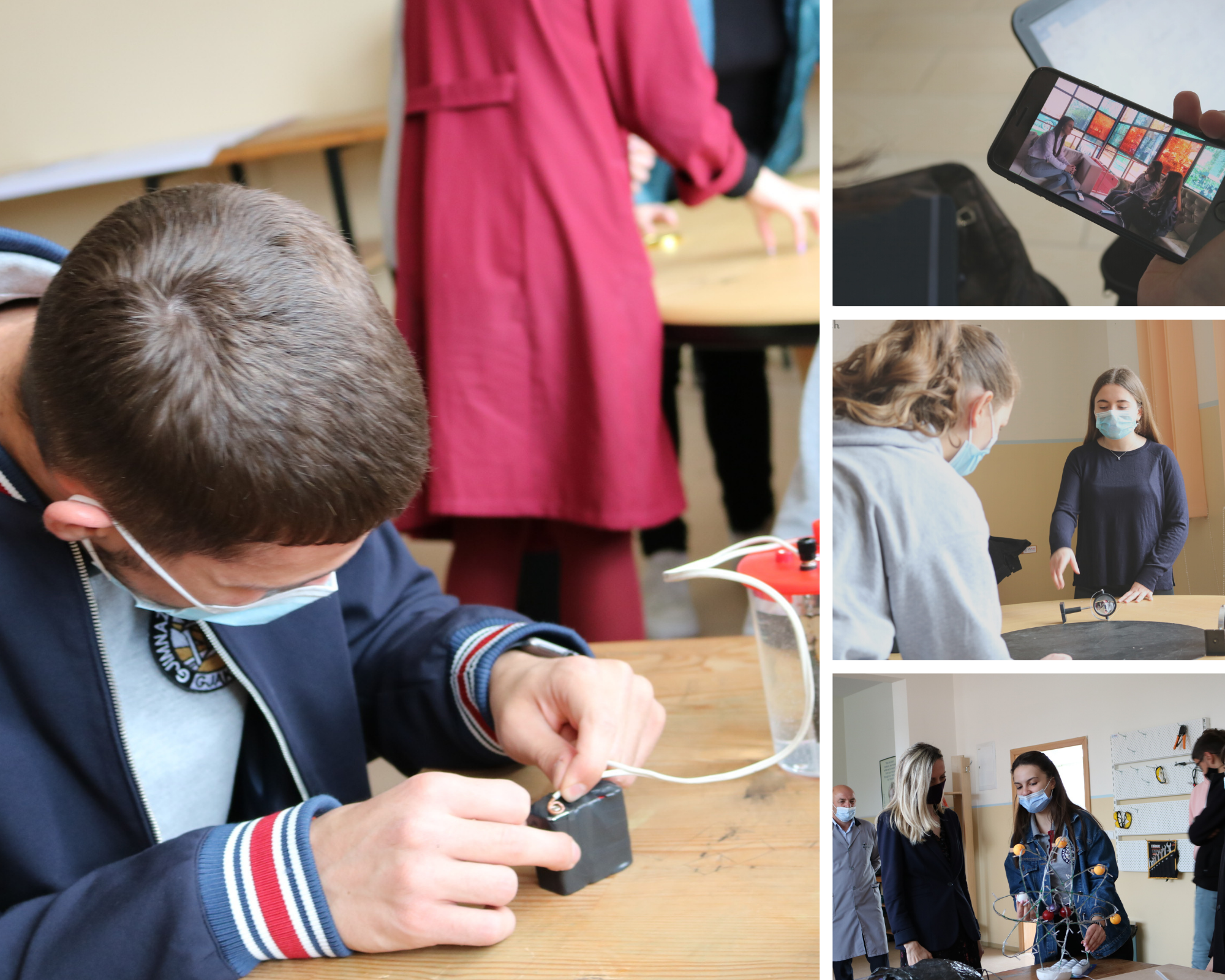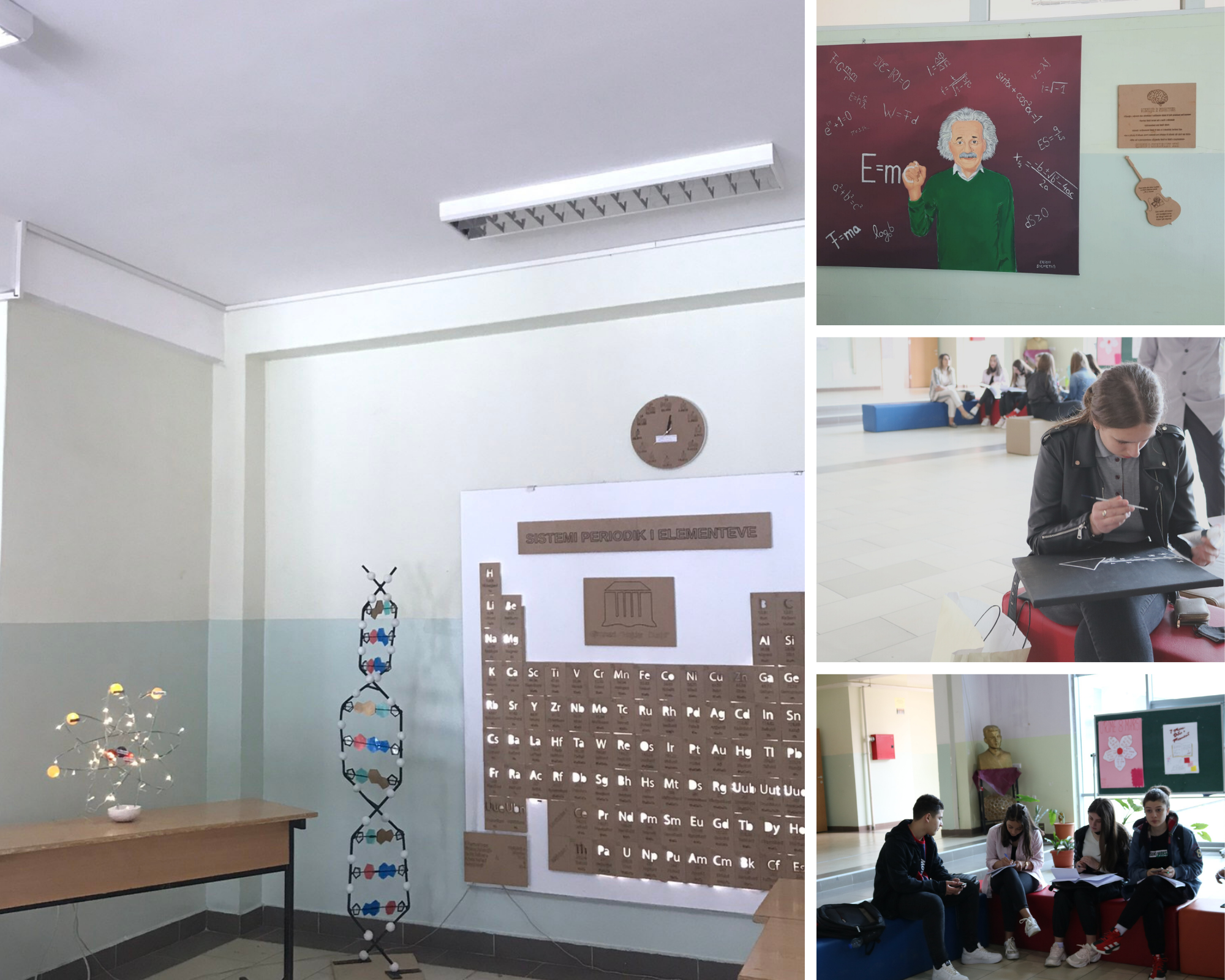





Publication Date June 07 2021

To aim for the greatest possible advancement of students, it is necessary to offer them a hands-on approach in education that helps them relate school lessons to the world outside, by developing methods for inclusive, interactive and attractive education. Activities, such as teamwork, research, field visits, exhibits, seminars, and similar events, have proved to play an important role in increasing students’ interest.
Considering this, in the beginning of the second period for this school year, the USAID financed ’After School Support for Teens’’ – ASSET Program, invited partner schools to organise the ‘Project Week’ activity. This activity was part of regular school program in order to have the projected curriculum learning outcomes achieved, but it got implemented in a different way with the students. The method was preceded by a joint planning by teachers of various teaching subjects, planning of individual and group tasks for students, which included analysis, research, discussions, conclusions and presentations. Students were highly involved and excited for their work, because they were free to use their creativity. This was evident in the presentation week, where they presented the final results of their school project work.
Of the eight participating partner schools, the Program introduces the story of students and teachers from the Hajdar Dushi Gymnasium in Gjakova in relation to this activity.
The Project Week was a good omen for the school, to have activities that make the learning process a better and more attractive experience for students during a very difficult period of coping with the pandemics. This was a good opportunity for the Program as well to visit the partner schools and meet collaborators after a period of time. The first visit, as part of this activity, took place on 27 April 2021 at Hajdar Dushi Gymnasium, to see the progress achieved with the three projects.
Applying theory to practice
The Project Week was manifested as a result of the Project based teaching course for teachers, a method designed specifically to concretize theoretical learning and interconnect different domains/subjects. Through this activity, teachers of Hajdar Dushi Gymnasium, who were trained to apply this methodology, helped their students to achieve learning competencies, especially to develop soft skills. We noticed that when we visited the gymnasium.
The students were waiting for us in Makerspace – the creative space established also by the ASSET Program, to show us their work with the projects, such as The Structure of the Atom, Electrolysis of Water and Alternative Power Generator – How do you envisage your future profession and Enlightenment, An enlightened mind.

To carry out these projects, students had used their knowledge and skills creatively. Erisa Lipoveci, student of XII grade, and her peers had created the structure of the atom. ‘’Why were you attracted by the Project Week?’’ – we asked Erisa. She said that through this activity they learnt how school subjects were interrelated and according to her it was a very attractive activity. In addition, we understood that the group, part of which Erisa was, had chosen the best way to present the things they had learned in the subject of Chemistry, Physics and Maths.
Meanwhile, other students were developing other projects at the gymnasium hall. In a corner, there were students painting. Through paintings they presented their profession. Berna Ajdini, focused in her painting, was intrigued by the question ‘’What are you painting?’’. She said that she is expressing the Math science as a universal language. ‘’It has been an impulsive week, productive work because we worked intensively. There are so many beautiful messages within paintings because we worked in different areas such as Arts, Literature and Graphics.’’ – she said.
Opposite to Berna, two other students were writing on their laptop relentlessly. Rinesa Zenelaj and Florentina Lekaj had carried out an interview about journalism. They had visited SYRI TV studios, a local TV and there they had interviewed a local journalist. ‘’We understood the time and the accuracy the journalists should always have. Through this activity we had the chance to closely observe the challenges of being a journalist’’ – they said.
In conclusion, teachers and students of this school, through the Project Week, proved that they are able to plan and carry out projects that enhance academic knowledge and skills necessary to cooperate, manage, lead, analyse, communicate and reflect.